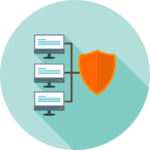 The BEng Telecommunications Engineering programme will offer you a thorough foundation in telecommunications. You will gain knowledge of design, implementation, testing and industrial applications in the modern field of telecommunications, as well as learn to operate at the cutting-edge of emerging technologies.
The BEng Telecommunications Engineering programme will offer you a thorough foundation in telecommunications. You will gain knowledge of design, implementation, testing and industrial applications in the modern field of telecommunications, as well as learn to operate at the cutting-edge of emerging technologies.
By the time you graduate from the BEng Telecommunications Engineering, you will have: extensive experience in the application of modelling and analytical methods; the ability to use IT tools and computer-aided design systems for modelling, analysis, simulation and design; the ability to recognise the limitations of principles, models, analyses and methodologies; AND the skills to design a system, component or process based on initial requirements and constraints.


 Learn to how to become a software engineer as you develop reliable, complex and secure software systems. From mobile banking apps to aircraft autopilot controls, you’ll learn how to analyse software needs, then design, test and build a system that meets them.
Learn to how to become a software engineer as you develop reliable, complex and secure software systems. From mobile banking apps to aircraft autopilot controls, you’ll learn how to analyse software needs, then design, test and build a system that meets them. Computer networks form the backbone of the information world, from personal mobile devices to social media and large scale corporate data services.
Computer networks form the backbone of the information world, from personal mobile devices to social media and large scale corporate data services. The BEng Telecommunications Engineering programme will offer you a thorough foundation in telecommunications. You will gain knowledge of design, implementation, testing and industrial applications in the modern field of telecommunications, as well as learn to operate at the cutting-edge of emerging technologies.
The BEng Telecommunications Engineering programme will offer you a thorough foundation in telecommunications. You will gain knowledge of design, implementation, testing and industrial applications in the modern field of telecommunications, as well as learn to operate at the cutting-edge of emerging technologies. Civil engineers design, build and operate the physical infrastructure that we often take for granted; from bridges and buildings to water treatment and waste management systems.
Civil engineers design, build and operate the physical infrastructure that we often take for granted; from bridges and buildings to water treatment and waste management systems.
 Our work may be complex, but it can be easily explained. So what do graduates of Machine and Process Control do? It is behind the automation of production across a range of industries. Most automated lines can be found in the food industry.
Our work may be complex, but it can be easily explained. So what do graduates of Machine and Process Control do? It is behind the automation of production across a range of industries. Most automated lines can be found in the food industry. On this Renewable Energy Engineering degree, you’ll study a branch of engineering that focuses on powering the world sustainably. From energy conversion and storage technology, to low carbon heating systems, electrical circuit analysis and large network grids, you’ll develop the engineering skills and technical knowledge you need to design, assess and improve electrical, renewable and alternative energy systems that benefit the climate and society.
On this Renewable Energy Engineering degree, you’ll study a branch of engineering that focuses on powering the world sustainably. From energy conversion and storage technology, to low carbon heating systems, electrical circuit analysis and large network grids, you’ll develop the engineering skills and technical knowledge you need to design, assess and improve electrical, renewable and alternative energy systems that benefit the climate and society. This course gives students in-depth knowledge in electrical machines, power systems, renewable energy, power electronics, electrical energy converters and electrical/environmental services in buildings with essential mathematical skills to develop both theoretical and practical skills in the wide sector of electrical power industry.
This course gives students in-depth knowledge in electrical machines, power systems, renewable energy, power electronics, electrical energy converters and electrical/environmental services in buildings with essential mathematical skills to develop both theoretical and practical skills in the wide sector of electrical power industry.
